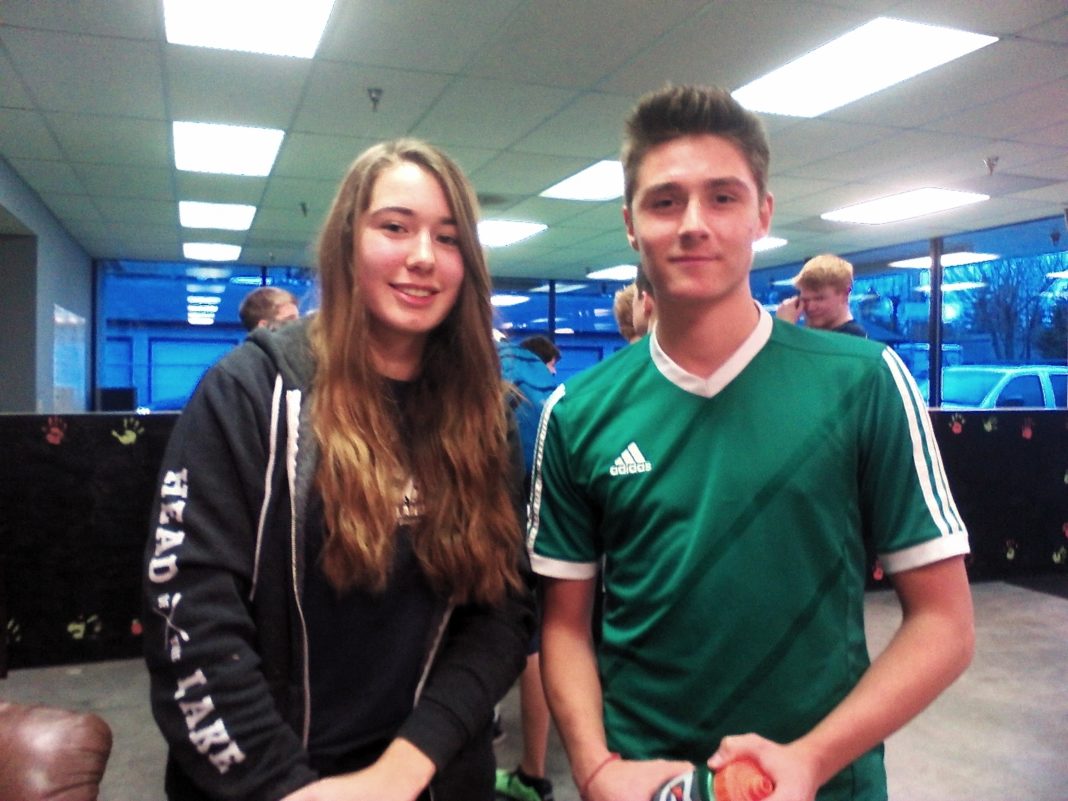Olympia Area Rowing (OAR) is an organization that encompasses all the rowers in Olympia and the surrounding areas at the high school level and beyond. This includes students from multiple area high schools together on one team. The high school members can train, practice and compete in regattas. Because of the spirit and camaraderie of the team, many foreign exchange students end up joining the rowing team alongside their host siblings. Paula Prehn and Jon Schaefer are two such students here from Germany. Both have been part of the high school rowing team since the start of the 2016-2017 school year.
![]() Though they competed in the fall, the team is now involved in winter training, preparing for the upcoming spring season. One of the ways they prepare is with the help of rowing machines which measure the distance the rowers have travelled based on the amount of work they put into each “stroke” on the machine. The team picks a distance (this year, the miles between Olympia and Tokyo) and tries to row that number of miles as a collective group.
Though they competed in the fall, the team is now involved in winter training, preparing for the upcoming spring season. One of the ways they prepare is with the help of rowing machines which measure the distance the rowers have travelled based on the amount of work they put into each “stroke” on the machine. The team picks a distance (this year, the miles between Olympia and Tokyo) and tries to row that number of miles as a collective group.
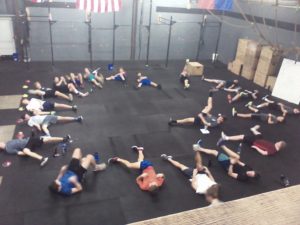
Paula is from Berlin and is a senior at Olympia High School. She learned about rowing from her host brother Alex, and her mother encouraged her to participate with him. She was interested, though, because she has done a lot of sailing at home in Germany. Paula was already familiar with crew and rowing from time spent on a team during seventh grade. This was a different atmosphere, however, because at that time rowing took place once a week and the activity was only for fun. When she joined the team here, she found it very competitive. “It was hard, but fun,” she says. It was easier for her because, although she was not proficient at the sport, she knew the basics. She has made a lot of friends and adds that the team was made up of nice people, “Like a big family.”
Jon was born in California but because he has German-born parents and family still living there, he moved to Germany when he was eight and has been living in Kleve, Germany ever since. He is a Capital High School junior but taking mainly senior classes thanks to the transfer and variations in German and American high schools. Like Paula, he was introduced to rowing by his host brothers, Jack and John. Jack, a current member of the team, brought Jon along with him to the first practice.
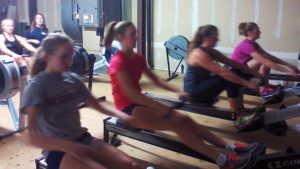
I asked both exchange students about the three regattas they have participated in – the Olympia area regatta and the state regattas in Seattle and Portland. Paula was pleased with her performance in the Seattle regatta but disappointed in the Portland regatta. Her boat’s skeg (a fin attached to the keel of the rowing shell that helps stabilize and maintain a straight course) broke and she was disqualified.
Jon’s favorite race was the Seattle regatta, but he also enjoyed the Portland one. “Seattle [was my favorite] because the scenery was beautiful,” he shares. “Portland [was great] because we won.” As much as he enjoys the sport, he admits crew is tough because of the time it takes to prepare for, and participate in, regattas. It’s an all-day affair.
When I asked about the differences between Germany and Olympia, the main one they both pointed out centered on high school in general. The schools, they felt, had a different high school spirit. In American high school, there is a lot of emphasis on the social aspects of teenage life, especially school-themed sweatshirts and sports rallies. In German high schools the emphasis falls on academics.
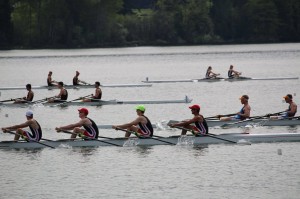
Both exchange students felt that German high schools were academically harder. The emphasis was on tests and projects, not homework, and they were given time in school to prepare for these tests. A lot of pressure is placed on students to participate, too. In American high schools, they feel there is more homework assigned and more tests given, sometimes twice a week. The work, however, is not necessarily harder – there is just more of it. The most significant different, they report, is in American high schools there are six classes, the same ones every day. In Germany, they have 14 classes and a totally different schedule throughout the week.
The other changes they noted involve living situations. Being from Berlin, Paula is used to independence. At home, she could go wherever she wanted with her bike or by bus. Because she is living on Steamboat Island with her host family, however, she relies on rides from her host family and friends to get around.
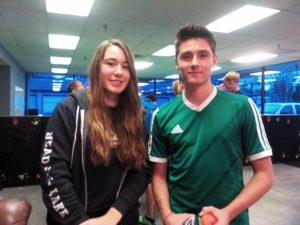
Jon also feels this to an extent because Kleve is a very small town, therefore he was used to being able to walk where he wanted to go and never felt the need to drive. He is, however, excited that Americans are able to drive vehicles at a younger age than Germans.
Jon also shared, and Paula agreed, that he thought they were lucky to be placed with host families with children involved in extracurricular activities. One of their coaches, Richard Hull, shared that Paula and Jon are not the first of OAR’s exchange athletes and they are looking forward to seeing more in the future.
To learn more about Olympia Area Rowing’s programs visit them online, email info@olympiaarearowing.org or visit their Facebook Page. OAR also sponsors “Learn to Row” day the first Saturday in June for anyone age 13+ to try their hand at rowing.









































